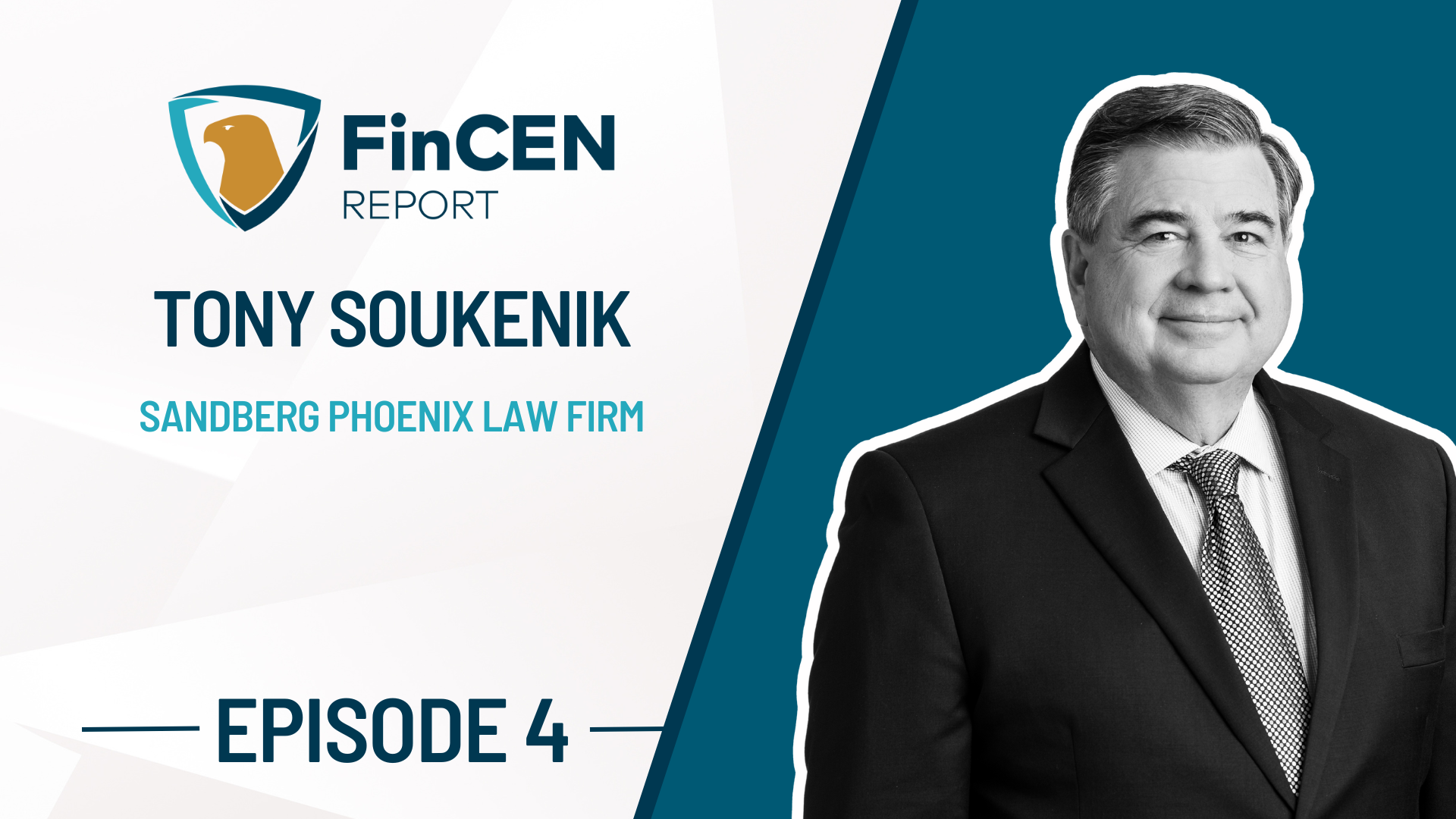In episode 4 of the FinCEN Report Podcast, our CEO Jonathan Wilson spoke with Anthony (Tony) Soukenik, a partner at the Sandberg Phoenix law firm in Clayton, Missouri, to discuss the ethical duties of lawyers under the Corporate Transparency Act (CTA). They explored the challenges lawyers face in advising clients about the CTA, particularly when the lawyer acts as the company applicant, creating potential ethical conundrums regarding ongoing duties to former clients.
About Tony Soukenik and How He Has Prepared for the CTA
Soukenik described his practice as diverse, serving small to medium-sized businesses, including many family businesses across generations. His work ranges from environmental matters to mergers and transactions. Sandberg Phoenix, a law firm with 180 personnel, spans across Missouri and Illinois, providing a broad range of legal services.
He shared that his firm was proactively preparing for the CTA, beginning with inventorying clients who might need to examine their status under the act’s exemptions. Additionally, the firm developed informational brochures and planned to include reminders about the CTA in client billings. This proactive approach aimed to ensure clients were aware of their compliance obligations under the new law.
Ethical Considerations and Advisory Opinions Regarding Lawyers’ Roles in CTA Compliance
Discussing the ethical duties lawyers have concerning the CTA, Soukenik highlighted the importance of informing clients about their legal rights and obligations. He mentioned the firm’s intention to request advisory opinions from the State Bar of Missouri on lawyers’ responsibilities towards active and dormant clients regarding CTA compliance. These inquiries sought to clarify ethical duties, including potential amendments to engagement letters to address compliance issues.
Additionally, Soukenik elaborated on strategies to communicate CTA requirements to clients, including notices in billing statements and direct communication. The firm aimed to use the CTA as an opportunity for client engagement, succession planning, and compliance checks, particularly focusing on clients that might fall under one of the CTA’s exemptions.
Anticipating Responses and Moving Forward with CTA Compliance
As Sandberg Phoenix awaited feedback from the State Bar, Soukenik expressed a commitment to sharing insights and strategies with the broader legal community. The firm’s inquiries aimed to clarify lawyers’ obligations under the CTA, ensuring that clients received informed advice on compliance. Soukenik anticipated extending these efforts to other states where the firm operates, contributing to a broader understanding of legal ethical duties under the CTA.


